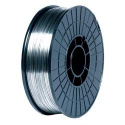|
Thoguh posted:Have fun failing in your career if that's your attitude! Engineering projects in industry are never solo. Hell, my current project has something like 300 engineers working on it, plus probably another 50-100 support staff. My career has been going well so far, but thanks! I never learned well in study groups. But in labs, where working in teams was necessary, I kicked rear end - especially when I had a good lab group and we all respected each other. My career, so far, has been more like working in a lab group than a study group.
|
|
|
|

|
| # ? May 15, 2024 16:35 |
|
I am an estimator for a very, very large construction company in the inland empire in Southern California. I work primarily on mechanical engineering projects such as wastewater and potable water treatment plants as well as underground utility portions of CalTrans projects. My background is in underground utility project management. Be prepared for very long hours. I work roughly 60 hours per week not counting my 160mile/day commute. The work is interesting and the pay is fairly competitive, but you will be burned out. I'm currently bidding an $80million water treatment project, and probably won't be getting much sleep for the next month. Just to throw it out there, my company is always looking for mechanical and civil engineers. I am specifically looking to bring a couple more mechanical engineers (right out of school if possible) on board for takeoff work and eventually field engineering work once I pick up some more projects. slaphappynickname fucked around with this message at 06:10 on Nov 1, 2009 |
|
|
|
I'm joining the Air Force, and I want to work on getting engineering degree (probably ME) in one of the on-base collages while I'm on active duty. Is this doable? (or even a good idea?)
|
|
|
|
.
Thoguh fucked around with this message at 14:25 on Aug 10, 2023 |
|
|
Thoguh posted:That's legit. I Didn't want to call you out. I just didn't want to give goons still in school the impression that they could ignore the whole "working together" thing and still move on. At the end of the day all of us goons will have to justify yourself (for school goons) and work together. Unless you are an independent Einstein you'll have to work together, no matter how smart you are. I think theres a pretty big line between "studying together" and "working together." I generally prepare for tests on my own in my own way, because I tend to easily mix myself up while trying to explain something that I understand. I've also been known to explain things awkwardly and mix other people up. Thats why when I give a presentation I make sure I carefully understand exactly what I'm saying when I present it and make sure it doesn't confuse others beforehand. Working in groups on projects or in labs is more about knowing how to interact with people and divide work properly than fully understanding something, understanding is required but not generally the end result. Long and short of it is, group skills are something you should have as an engineer, but you don't have to get them from study groups.
|
|
|
|
|
oddspelling posted:I'm joining the Air Force, and I want to work on getting engineering degree (probably ME) in one of the on-base collages while I'm on active duty. Is this doable? (or even a good idea?) All the people I know who studied full time while holding down a full time job pretty much had zero free time and a very flexible and understanding job. I'd recommend taking a heavily reduced course load and avoiding group project based courses entirely for the first couple semesters just so you get the chance to figure out how much of a time commitment your job and your studies are going to be and don't screw yourself. Group project are especially tricky because you're managing the expectations of other students and trying to contribute while also managing work and your own studies. If the group procrastinates and has a couple weak links (this happens all the loving time) you can easily do 80-100 hours on the project alone in the last week desperately trying to get it finished on time. This pain will hopefully teach you project management skills and how desperately important it is to be in a group with stand up people.
|
|
|
|
oddspelling posted:I'm joining the Air Force, and I want to work on getting engineering degree (probably ME) in one of the on-base collages while I'm on active duty. Is this doable? (or even a good idea?) It's not impossible but highly unlikely. Either finish your degree then enter the air force or try to get as much of your education done while in the service and then get out and finish your degree. Realize that an engineering degree is a lot harder to put together than say a liberal arts degree because of the course load and labs etc... The AF has its own community college, which you can get a associate's out of but actually getting a full undergraduate engineering degree will be pretty much impossible due to the time demands and operational schedule of being in the military. You also cannot rule out the possibility of deploying to Iraq or Afghanistan either, which will pretty much a full stop on your "normal life" activities for 6-7 months at minimum. Long story short, go to school full time if you want degree otherwise do it later.
|
|
|
|
Engineering Physics was mentioned earlier in the thread, but it might be different between schools. I graduated from OSU with a specialization in Mechanical Design. I spent 3 years working with CAD programs and another 2 years working in physics. My reply to the I had a few offers since I got out but nothing exciting.I toughed out and after 8 months of applying and waiting to hear back from other companies, I ended up with a Manufacturing Engineer job. I work on Boeing's 787 line. It's fantastic when you're at the forefront of a relatively new company. We handle most of the construction and installation prior to Boeing's finishing touches. Although most manufacturing engineers on-site deal with the planning of the work, I lucked out and also work directly with the Boeing crew with regards to future changes. So crawling around on the plane and mingling with the mechanics is a great experience. Someone mentioned it before, to get dirty, and be humble about those you work with. Couldn't have said it any better. If I could afford the pay cut, I'd take an ME Technician job so I could experience the plane's construction from the bottom up. Feel free to ask questions or sling insults about why we're so late with this plane.
|
|
|
|
So wait, all you guys got the Calculus courses credited along with the physics courses, towards your degree? I had to take those all as prerequisites for the program. (For reference: I needed Cal 1, 2, Linear Algebra, Physics 1, 2 and 3, and Chemistry 1, before coming to university) Is the engineering program longer than 4 years else where? (Or should I say, more than 120 credits?) Or do we just get screwed with other courses that you never need to take.
|
|
|
|
Blight Runner posted:Someone mentioned it before, to get dirty, and be humble about those you work with. Couldn't have said it any better. I just wanted to emphasize this point. Just because you have a degree in engineering doesn't mean you know better than the welder whose been doing his job for 30 years, or the machinist whose forgotten more about fabrication than you will ever know. The guys who spend every day working on the stuff you're designing are an invaluable resource. This is particularly true when it comes to testing.
|
|
|
|
Cypress posted:So wait, all you guys got the Calculus courses credited along with the physics courses, towards your degree? Yes, the calculus sequence are a part of the curriculum for the major. My electrical engineering bachelor's required 131 semester hours. I think I have upwards of 160 on my transcript, that includes AP work though.
|
|
|
|
Cypress posted:So wait, all you guys got the Calculus courses credited along with the physics courses, towards your degree? I just looked mine up. We required 155 credit hours over 4 years. So our program apparently just squeezed more in. I don't know why you'd design your program so that everyone has to take a bunch of prerequisites when you know they don't have them out of high-school. Just design them into the program.
|
|
|
|
.
Thoguh fucked around with this message at 14:25 on Aug 10, 2023 |
|
|
|
Thoguh posted:Or did you mean that your university doesn't allow students to declare an engineering major until after freshman year? Because then those pre-reqs would make a lot more sense. Cypress, most accredited engineering degrees in the US are around 120 credit-hours and take 4 years for the typical student to complete.
|
|
|
|
oddspelling posted:I'm joining the Air Force, and I want to work on getting engineering degree (probably ME) in one of the on-base collages while I'm on active duty. Is this doable? (or even a good idea?) Getting the degree while holding a job would be a problem. That said, I think you can definitely make progress. For me, math really 'clicked' about a semester to a year after I'd completed the class. So, if I were in your position, I'd start taking math classes. They'll transfer or they won't. But, either way, the extra time with the math will give you a pretty big advantage when you're in engineering school.
|
|
|
|
My civil degree was 132 hours. I did it in 9 semesters. I had to take Calc 1,2,3 linear Algebra, diffy Q, Physics 1, 2, chem 1,2. Most people I know take 5 years to do their degree, typically with one semester on co-op/internship.
|
|
|
|
Diffy Q? That's the most retarded way to write it I've ever seen. It's Differential Equations not Differentially Quations.
|
|
|
|
I'm on my third semester as an Automation Engineer. I loathe Differential Equations and Dynamics, and thankfully I took Multivariable Calculus this summer. This semester is hell with the advanced programming course we're having. Oh well, 4th semester will be a breeze compared to this one.
|
|
|
|
Confused student to be waiting on the January start at my CC for the AA (or first two years, whatever) - and I have some questions. I've spent a LOT of time trying to convince myself to not want to do ME, but I really do. I've turned wrenches on cars since I was 12, I nerd out over Diesel Engines and I'm wondering if engines/reactors/whatnot is a good specialization - and if it honestly just sucks, what would be a good path to go with ME? I like nuts and bolts things and wish to work with them, I honestly don't care if I'm doing stuff with pipes carrying steam or oil for that matter. I was told HVAC is always in demand but 'boring'. I seriously doubt that but nevertheless anything I can nerd out over would interest me. Also, I'm starting late in life. I'm 24 now, will be 25 just before I start, I have a few credit hours with a 2.0 GPA from when I was 18 and let myself be pushed to do school when I was honestly in no state to try to do much of anything. ~BAD THINGS~ happened out of my control to my family, lets just put it like that. Once that was dealt with I tried a trade, welding, but discovered its not for me as I am in fact a nerd and don't want to work long hours 7 days a week with people who make tea baggers look sane in a shipyard. More power to them but... I want benefits, a pension, good money without working 70 hour weeks, and not risk my life regularly. I'm also claustrophobic. Like, I can be under deck in a frigate (FFG, if anyone knows navy ships) or something, but not in a tank the size of a few coffins lined up and separated by bulk heads into... coffin sized compartments to do weld repairs in. God that sucked. Anyway, are those first few classes I barely drug myself through while dealing with BS years ago (I'm now 25) going to count or can they get factored out by the rest of my student career? I'm VERY, very serious about school now and really badly want to go, whereas prior I was just making myself go because I was told to, despite zero motivation to do anything but hide from the world or pretend it wasn't falling apart around me. So yeah, what are good fields for a ME-to be to look for. How do I find internships with literally NO connections in this drat state, just bug people at school and go to the job fairs?
|
|
|
|
Nihilanthic posted:Confused student to be waiting on the January start at my CC for the AA (or first two years, whatever) - and I have some questions. You say that you don't care about the pipes and steam and crap, but if you want to work with engines, then thermodynamics and fluid mechanics will be the two most important classes you will take. Sure looking up values in steam tables suck in thermo, but at the end of it, you can easily take a tech elective or twelve about all the engines you want. It's all very related and really loving cool (even if HVAC is kinda boring) Good luck with the AA-route. You can usually cut some BS out of a degree by doing the basics (calc, chem, physics, etc) at one so when you transfer to a big engineering program you get put right into the cooler classes. Not sure about AAs, but at regular engineering schools, there will be at least one job-fair per semester where companies pay crazy amounts of money to set a booth up at your school for a day. Talking to professors and volunteering for projects/research is also a good in.
|
|
|
|
Frinkahedron posted:You say that you don't care about the pipes and steam and crap, but if you want to work with engines, then thermodynamics and fluid mechanics will be the two most important classes you will take. Sure looking up values in steam tables suck in thermo, but at the end of it, you can easily take a tech elective or twelve about all the engines you want. It's all very related and really loving cool (even if HVAC is kinda boring) I should have said 'don't mind doing it' as in I would like it, probably. It came out wrong because I used to WELD pipes, which was a monstrous pain in the rear end to do. I swear to god I'll never ever make someone do any out of position or around a corner with a mirror welding they don't have to, though, should I design piping. I should also add I'm quite interested in learning thermodynamics and fluid mechanics. I'd love to make a cylinder head, or at least learn how to port them. So why is HVAC boring? Blowing air around and studying how heat moves and unevenly heated air mixes looks like it would be kind of complicated - and if its always in demand and pays well, why not do it? For that matter, what's the pay like? I checked and I only find M.E. salaries, not HVAC-specific ones. I'm hoping with my school my AA won't have too much nonsense I don't need when I go to UF/UNF/University of wherever (I'm in Jacksonville Florida) but I don't want to miss out on two summers where I could be networking. All of my connections are for welding jobs or from when I did commercial sales to mechanics before I learned my trade, I REALLY need to start making some from the looks of things. Is it possible to just invite yourself to such a trade show or job fair? Finally, are those few classes I took years ago really going to be a pain in the butt, or will I be able to cover it up by doing good now? I really wish I was ABLE to be this serious and this motivated in the past, but that's neither here nor there and I know now what I want to do. Plus I'm a lot more mature than I was then. Silver linings!
|
|
|
|
Nihilanthic posted:So why is HVAC boring? Blowing air around and studying how heat moves and unevenly heated air mixes looks like it would be kind of complicated - and if its always in demand and pays well, why not do it? For that matter, what's the pay like? I checked and I only find M.E. salaries, not HVAC-specific ones. AA is not nearly has marketable as a BS. With an AA, you'll never be considered an "engineer", just an engineering technocian. This may still open up a lot of job opportunities you don't have now, but I have a feeling you'd regret the decision later on when you hit your career peak within a few years of starting, and watch young and inexperienced engineers getting promoted above you. grover fucked around with this message at 11:45 on Nov 4, 2009 |
|
|
|
I've got a master degree from a foreign school and will have one more (one of these days...). I'm living and working abroad for the near future. Someday, I might want to go back to the States, and I would much rather end up a P.E. down the line. As I understand it, I have to:
|
|
|
|
Groda posted:I've got a master degree from a foreign school and will have one more (one of these days...). I'm living and working abroad for the near future. That's the process, AFAIK, but I'll ask some people at work (we have a bunch of foreign PEs). Which field are you in?
|
|
|
|
I'm curious about the P.E. title/certification. How difficult is the test? I feel my exposure to physics and engineering can steer me to the right topics, but I'm sure I'm forgetting something. Any topics that you recommend beyond: dynamic analysis (fatigue, stress, failure, etc), thermo, and physics? Should I just go through my curriculum and try to re-learn everything from the past 5 years? My current job has me doing a lot of planning and book keeping, so I'll need to sharpen my skills again. No real time limit on how fast I learn, just looking for suggestions on improvement when the job doesn't always provide it.
|
|
|
|
SubCrid TC posted:I just looked mine up. We required 155 credit hours over 4 years. So our program apparently just squeezed more in. I don't know why you'd design your program so that everyone has to take a bunch of prerequisites when you know they don't have them out of high-school. Just design them into the program. Thoguh posted:Where are you from? In the US, none of those classes are "high school" level. A lot of college track kids might have a few of them (Calc 1, a semester of physics or chem) through AP classes or going through the local community college, but no program would expect you to have any of those before you step foot on campus. I probably should have mentioned that i'm in Quebec where we have Cegep. That's where our whole pre-requisite courses thing comes in. Sorry about that. I really just wanted to see if those courses counted towards the 120 we do in this degree, but if yours is more credits, that probably explains it. Also, for the grad school engineers in here, is it worth it to take a PhD? I've been looking into grad school, and i've recently had my world rocked when I found out you don't actually need a masters to do a PhD, it always seemed like you did. I really love doing projects on my own outside class (when I actually have time, this semester is pretty brutal) and I'd probably enjoy doing my own research as opposed to helping someone else with their research in a master's program. Right now i'm contacting professors at my university to see about undergraduate research possibilities, and i'm already a programmer in the industry* so I have work experience, but if I go for PhD I expect their standards for admission to be higher and I want to be sure the time it takes is worth it. I love research, but I'd like to sleep some day too. *For those considering working a lot while doing an undergrad I would recommend against it. I've been doing 16-40hour weeks depending on what my schedule at school looks like and really, a lot of that is time I could be doing more homework/studying. Because of this my GPA is down to 2.82 but I plan on having it back up by the end of next semester since that's when I start my technical electives and have a little more free time. On the plus side, I'll graduate with over 4 years experience in the field (Computer Engineering does programming too, so it's related) **Oh, and don't rush the degree, I started September 2007, and i'm finishing my 3rd year of courses this semester. And I did an internship (really, it was credits to do my job that I already had). Pushing 3 years of school into two is kind of brutal. In the end I don't get to finish any faster since I have my year-long project, but I will have a reduced course load allowing me to do undergraduate research, or take other courses and boost my GPA.
|
|
|
|
oddspelling posted:I'm joining the Air Force, and I want to work on getting engineering degree (probably ME) in one of the on-base collages while I'm on active duty. Is this doable? (or even a good idea?) Yes and no. College in the military is one of the things that sounds great but isn't as great as it works out to be. First of all, you need to find a school that will even have an engineering degree program, and is actually decently accredited. A lot of schools are 'distance education council accredited', which basically means jack poo poo. It's going to be hard to transfer those credits to any other one. You need to find a school that's regionally accredited. Next, you're going to need to find a school that even offers an engineering program. From my experience with taking classes in the Army, 99% of them offer more vocationalish programs, like turf management or education to be a technician. This might only be an Army thing, but there's only a certain amount of money that the Army would comp per year. It was $250 a credit hour, and you could only take so many credit hours per year. I think it was something like half a year's credits, but I could be wrong. Unless you're in for 8 years, I don't think you're going to get an engineering degree. An associate's is pretty feasible though, as well as knocking out some core requirements. If you're going to take classes though, don't do them online, take them in a physical building with an instructor. I took chemistry online while deployed and it loving sucked. We were graded only off of tests and online labs. The assignments were basically read these chapters, then take the test. There was no benefit of sitting in a lecture, having study groups, or anything. I was lucky that a friend of mine was a chemistry major who helped tutor me and knew his stuff. Oh yeah, and one more thing. It might be Army-only again, but your job and training can also translate into credits, as well as other schools and classes you take.
|
|
|
|
Nihilanthic posted:I should have said 'don't mind doing it' as in I would like it, probably. It came out wrong because I used to WELD pipes, which was a monstrous pain in the rear end to do. I swear to god I'll never ever make someone do any out of position or around a corner with a mirror welding they don't have to, though, should I design piping. HVAC is the most unexciting thing ever. I dropped it as soon as I could. Most of my refrigeration course covered it anyways. Steam, however, is the best thing ever. Diesels are dirty, noisy and require a godawful amount of maintenance. There is nothing so beautiful as the sound of smoothly running steam plant. If you want to wrench on engines you could always look to go into propulsion plants or power plants. Operations is quite a bit more interesting than design anyways.
|
|
|
|
SneakySnake posted:Yes and no. College in the military is one of the things that sounds great but isn't as great as it works out to be. He might not be able to take the engineering courses but getting all the general req's out of the way can be a big help. The most important thing about engineering is to make sure you understand and can apply the material since you will most likely need a large portion of everything taught at some point in your career. If you dont understand it or dont make an effort to you are just wasting your time.
|
|
|
|
KaiserBen posted:That's the process, AFAIK, but I'll ask some people at work (we have a bunch of foreign PEs). I'd hate to do the mech.eng. F.E. since I know jack poo poo about materials.
|
|
|
|
grover posted:It's boring to a student because it's practical design and not on the cusp of physics, but as far as practical engineering goes, it's just as exciting/non-exciting as every other branch. There's a lot more to HVAC than people see on the surface, a lot of thermo, but also a lot of fluid dynamics, control electronics, etc. It's not like you can just say "oh, I have 20 tons of heat, I need a 20 ton CRAC unit" because there is a lot more to it than that, and it all needs to be designed and calculated. An AA is a transfer degree... I'm not getting a 2yr AS to go get a job - I'm getting my first two years at a CC to save money. and because I had one semester prior of classes with a dismal 2.0gpa and no english, so I doubt I could go to a University with that. I'm by no means NOT getting a Bachelor's. I kind of want to stick it through and get a Masters, actually.
|
|
|
|
SneakySnake posted:Yes and no. College in the military is one of the things that sounds great but isn't as great as it works out to be. Yeah, the more I look into it, the less feasible it looks.  I'm beginning to think I be better off studying something easier (like business management, or something along those lines) and then have the GI Bill pay for my engineering school once I get out. I'm beginning to think I be better off studying something easier (like business management, or something along those lines) and then have the GI Bill pay for my engineering school once I get out.
|
|
|
|
Whats it like as a Computer Engineer in industry? Do Computer Engineers work on hardware and software or do they get grouped into programming. Also what is Computer Engineering like in the military if anyone knows?
|
|
|
|
Blight Runner posted:I'm curious about the P.E. title/certification. How difficult is the test? I feel my exposure to physics and engineering can steer me to the right topics, but I'm sure I'm forgetting something. Any topics that you recommend beyond: dynamic analysis (fatigue, stress, failure, etc), thermo, and physics? Should I just go through my curriculum and try to re-learn everything from the past 5 years? The FE exam is a hard test, but you don't need to ace it, just pass it, and it's easy to pass with prep. The PE exam is extremely difficult; You really have to know your poo poo! If you know your poo poo, and know it under pressure, it's easy. If you don't, you'll never pass. That's why it exists. Typical pass rates are between 40-65%, depending on the discipline and year. The NCEES website has all the info you need. You'll need to check with your local state engineering board on their requirements to sit for the exam. IMHO, the PE exam is not so much a test of how much you know, but rather how well you can use your references to get the right answer. SneakySnake posted:Yes and no. College in the military is one of the things that sounds great but isn't as great as it works out to be. grover fucked around with this message at 23:22 on Nov 4, 2009 |
|
|
|
DNova posted:Diffy Q? That's the most retarded way to write it I've ever seen. It's Differential Equations not Differentially Quations. DifEQ...better? grover posted:The FE exam is a hard test I hope you are not serious... The FE is freaking easy. Buy the review books, go through it, pass. It is seriously easy. The worst part was waiting 2 hours to start the second half. The only people who think it is hard is bad engineers(who don't pass anyway) and lazy people who don't give a drat. spwrozek fucked around with this message at 00:47 on Nov 5, 2009 |
|
|
|
spwrozek posted:DifEQ...better? I think those who fail are those who heard it was easy and don't prepare at all and walk in expecting a cakewalk... and are rudely surprised.
|
|
|
|
DefiantCls posted:Do Computer Engineers work on hardware and software or do they get grouped into programming. All of the above. Some computer engineers end up as programmers, some design hardware, some test software or hardware, and so on. There are a million different things that computer engineers can do. You can ask 50 different computer engineers what their typical day is like and hear 50 completely different answers. I work in testing consumer electronics. They're devices that use specialized embedded processors and run Linux. Some of my job is just sitting around playing with the devices trying to get them to break. Some of it is writing up test plans for technicians to run through. Part of it is writing test software that interacts with the devices through a debug port on the PCBA. Sometimes, I even get to design new features for the devices, which is pretty cool when you see users talking about them on forums.
|
|
|
|
grover posted:The thing about the FE is that every question on it is trivially easy... if you know how to do it. If you can't answer the 2 minute problems in 30 seconds, you're doing it wrong. The breadth of the test is so expansive that it's difficult to know how to do it all, though. Everyone gets their area of expertise as a bunch of gimmes, but knowing all the OTHER areas is tough- that's why there's a 40ish% failure rate. I took it 8 years after I graduated college, way overprepared, and left about 2 hours early, scoring well into the 99th percentile when I took it. But I recognize that it's a bitch of a test- I mean, it's 8 hours of marathon test-taking. That is fair enough. I agree with you and think being 8 years out would make it more difficult. I would add one thing is that the problems that you know you have no clue on guess and go on (thermo for me). You are probably not going to figure it out so no point in wasting time.
|
|
|
|
BeefofAges posted:All of the above. Some computer engineers end up as programmers, some design hardware, some test software or hardware, and so on. There are a million different things that computer engineers can do. You can ask 50 different computer engineers what their typical day is like and hear 50 completely different answers. Sounds good. Thanks for the answer
|
|
|
|

|
| # ? May 15, 2024 16:35 |
|
I got a BSEE in 2005, I've been working for Lockheed for four years now. I learned more in my first year of work than the entirety of my schooling up to that point, in my opinion. It's been a completely invaluable experience, and totally changed me as a person. The reasons why? Quite frankly, there are not enough engineers, and too many are old and ready to retire. Get ready to learn. A lot. It's not just technical either, there are managerial aspects to engineering that you don't even begin to touch on in school. You are going to be thrust into situations well beyond what you are equipped for. It's a great learning experience, and it pays awesome. That said, I really couldn't say whether or not I'd recommend engineering as a major. It's a lot of work in school, and it's even more when you graduate, although it's a different kind of work. School work is just a crushing coarse load, big deal. Put in the time, it will get done. After you graduate it's a pressure cooker that school couldn't prepare you for. At least half of the people I work with have blood pressure or stress related health issues. I've seen people age before my eyes. I don't believe it's a coincidence that so many people have died of heart attacks/cancer etc where I work. Seriously, it's very easy to just fall apart physically because of the work, even at a young age. I'd recommend learning how to eat right, exercise and meditate, never sacrifice your health for work. So, I really cannot see myself doing this for another 10-15 years. It's strange to say that though, because I really do like my job now, I just don't see where it goes.
|
|
|
|


























